Release Date: 16 October 2013
Director: Bilal Lashari
Review by: Muhammad Aayan Mirza
Waar was special for all of us, special not only because of the movie’s humungous budget and a cloud of unbelievable early dreams like a possible foreign distribution deal with Warner Brothers, or the news of filmmakers considering the French actress Sarah Desage for a cameo (I personally wanted this one to be true), or the rumour that the then Interior Minister Rehman Malik would play his real life role in the movie. These were all exciting bits of a stage where maturity hadn’t yet hit the project, and all these considerations were the talk of the town, but then they died eventually. But all of this didn’t really mean much to us, what meant more to us was a slick, commercial Pakistani action-thriller coming out that really looked one of its own kind. From what we had seen in the highly enticing trailer, it really was incomparable to anything that had come out of Pakistan film industry ever, ever I repeat. After a long miserable wait of more than two years, the film started showing its colours. It started getting bigger and better, and it hasn’t ended yet, in fact the whole after release buzz is still in its infancy. Two long years coupled with freakishly awesome trailers and news accounts like the ones mentioned earlier were enough to build and attach the highest of our expectation with a project like this. So what happens when such a huge project really becomes a reality to our eyes and brain? Below is how I saw it. I will start with the script and the plot which account for the biggest and most vital part in any movie and will then move on to other significant sectors of the film. Story, Script and Plot: The whole story was actually built on couple of small blocks, not the sub plots of the movie I would say, but simply some short episode like blocks running parallel to each other but on a significant distance from one another especially in pre-interval part. Hassan Waqas Rana, the writer and the producer of the film did a fairly good job writing and researching the minute details of most of the middle parts of these blocks but wasn’t that successful in giving them a good finishing and even a strong past. You get those ‘but how?’ moments while watching a couple of scenes in the movie. There were more or less six of such story blocks running the film in bits that started coming together in second half and then structured what you would call the story of the film. The most significant one was of the wounded lead character Major (R). Mujtaba played by Shaan Shahid, the former Pakistan Army officer who was once one of the best intelligence operatives of the country, hit by a personal tragedy that makes him too unstable for what he is considered best at, leaving him no choice but to leave the service. There were other such story blocks we’ll talk of later in the acting and role distribution part, but the common thing in all these plots was a missing strong gelling element. Also, the movie wouldn’t have been much different had for suppose Ali Azmat’s part was plucked away from the story, or that early dragged story part running in Waziristan for that matter. As a writer you write things, and then re-write them multiple times until they become the finest of what you had thought in your mind. Waar’s plot missed heavily that fine-tuning part. Besides that, the best part in the movie was its well researched script, you won’t feel much of shoddiness in the little elements of the movie, for example the use of weapons, gadgets, choppers (for transportation and combat separately) and very significantly the language used during military conversations were all very well written. To give a very small example (not exposing anything important of the story) of how detailed the story bits were researched, here is this one little scene when Javeria (Ayesha Khan’s character) opens Mujtaba’s files from the Intelligence database which reads the character being a graduate of a particular PMA (Pakistan Military Academy) long course, an essential background element of such an officer which gave a sense of things being done and researched for the script in entirety. However, things at times did get out the reality bubble and gave more of a show-off look, for instance in the same scene the profile database shows the real life rotating images of Shaan and Shamoon’s character that looked quite unreal and more influenced and adopted from James Bond movies, a simple digital picture would have fulfilled the purpose in a far better way.
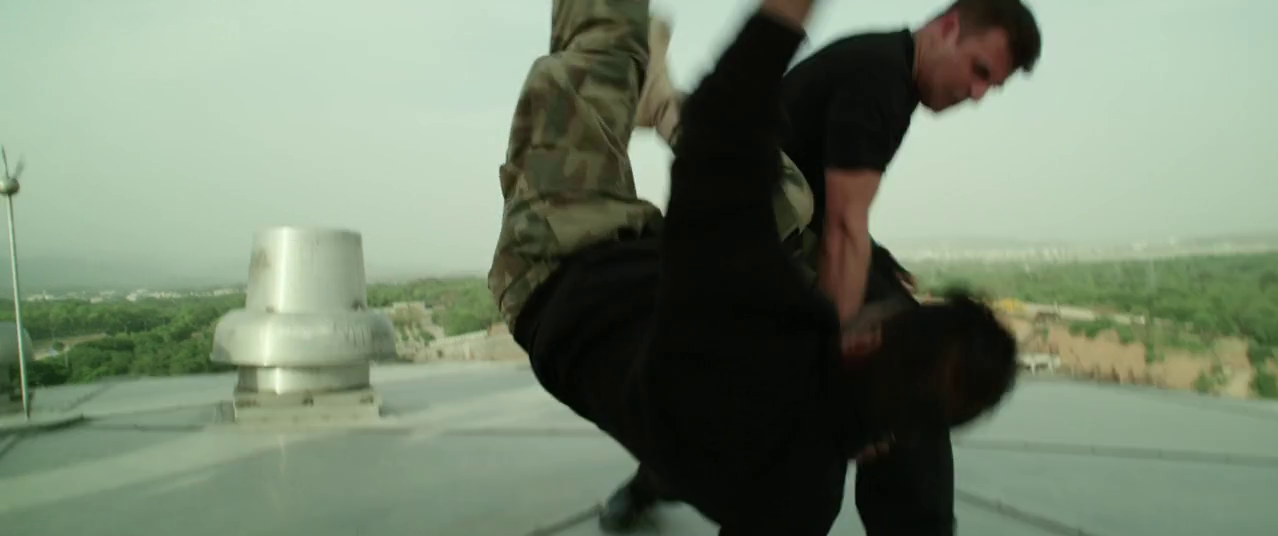
The story wasn’t much of a thriller on whole that would make you hold your seat arms in anxiety for every follow-up scene, it was highly stylised and after every scene, you would say, ‘okay, it was a satisfactory job done by the writer.’ The most unsatisfactory part however was the ending. In the whole movie, Ramal (Shamoon Abbasi), the lead antagonist was depicted as this highly trained and an intelligent villain keeping himself at least two steps ahead of his hunters, but in the end he falls just too simplistically after a good hand to hand combat which didn’t feel enough to finish Ramal’s character. It looked as if it was ended for the sake of just ending the whole thing, perhaps the writer should have spent less time on over stylising things, and more on giving the story a good end. The ending lines that went something like, ‘Till the time history is being written by the hunters, lions will never be glorified,’ a re-arrangement of the famous Chinua Achebe’s famous saying which managed to end the whole thing on a little proud note. Besides that, the script was written well, dialogues were good, some heavily influenced by the western style, that at times seemed to be not relatable with, but were good at the end, and humour was good, fresh and intelligently thought of. The story did manage to depict the writer’s personal narrative about the issue, which one can agree or disagree with but things at some points did sound a bit unreal and for some particular cases, a bit of clichéd as well, though I won’t mind agreeing with someone who throws the counter argument that how can such a thing be called a clichéd for this particular case when this film is the first one to depict it all at this level. Both are quite agreeable theories to me. Though stylised and written in a very Western manner, the story still had its melodramatic scenes found more in the eastern side, which I believe was good as it brought a little balance to the plot that would have been dragged away from the truth had these bits weren’t there. After all, Pakistani cinema hasn’t really created a separate formula of its own yet, maybe this fusion will help creating one. To story separately I would give 2.5 out of 5 stars. Acting & Role Distribution: The three main highlights of the film on acting grounds (in the given particular order) were, Shaan, Ayesha Khan and Shamoon Abbasi. Shaan managed superbly between his character’s dark past, arrogance and capabilities. His dialogue delivery, moves along with weapons and a loving father and husband feel really surfaced as one of the highlights of the film. If you haven’t seen much of English-speaking Shaan yet, you are in for a big treat. Ayesha Khan playing the character of Javeria too was excellent in her domain, as a smart FIA intelligence officer and a loving sister she absolutely made her mark. There wasn’t really much of her combatant side shown, but whatever she was given, she performed well, her accent though was at times hard to consume but will get settled down into the head after a couple of seconds, especially if you are aware of the actress’s foreign brought-up. Shamoon too was remarkable in his attitude of being one of the best of RAW’s, and if he was best, he showed he was best. Shamoon did lack at times in his English expressions, but got covered every time by the aura he had already created of his character.
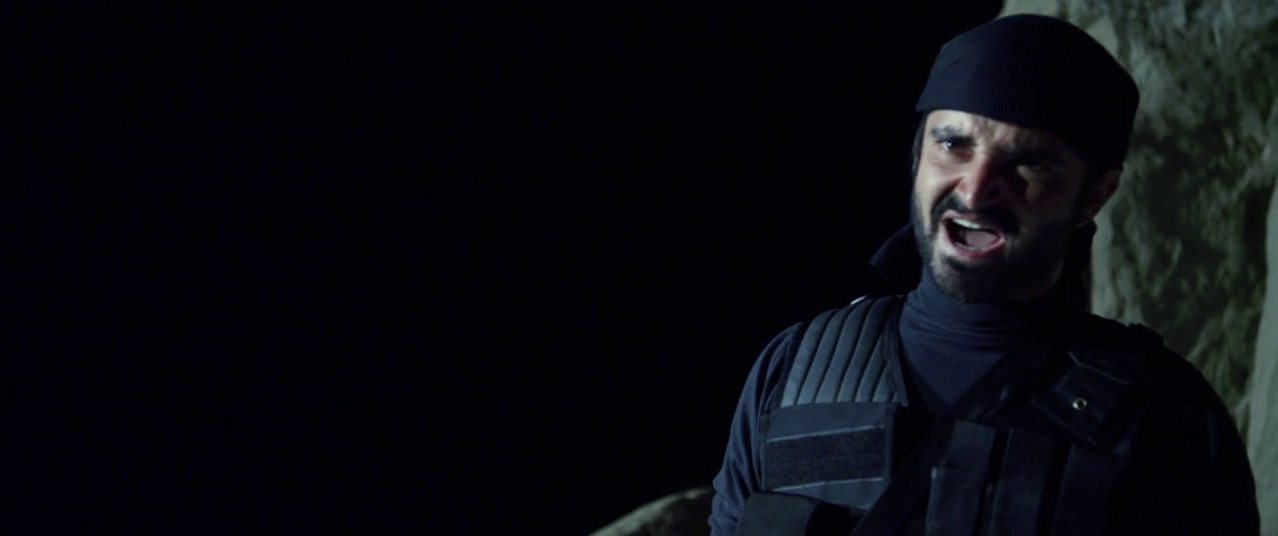
The other three acting treats (in no particular order) were Hamza Ali Abbasi as Javeria’s carefree but equally and highly capable CTG (Counter Threat/Terrorism Group) officer and team leader brother named Ehtisham, Meesha Shafi as RAW’s cover agent Zoya/Lakshmi operating in Pakistan as a social worker, and the great Ali Azmat as highly patriotic and an upbeat political leader Ejaz Khan, who besides romancing Lakshmi’s cover character secretly, is also working enthusiastically for this project of a hydel dam which though can resolve much of Pakistan’s energy crisis but is finding hard to come into reality because of being stuck in the usual dirty political nexus of the country. Hamza has improved a lot as an actor from his ‘The Mudhouse & the Golden Doll’ days. Although there wasn’t enough of him in the movie, but Hamza looked quite comfortable with his English expressions and did a commendable job in that blood warming scene where he delivered his speech before leading a team of SSG (Special Services Group) soldiers into what was one of the most thrilling scenes of the film. Meesha again had limited lines to speak, but was good in whatever she had in her plate, she looked comfortable operating weapons as big as an MP-5 and romanced Shamoon Abbasi unlike anything else. Ali Azmat was good as a first timer, he did at times look over doing some of his bits, but gave an excellent performance overall, the last scene of his did have the power to get one emotional.
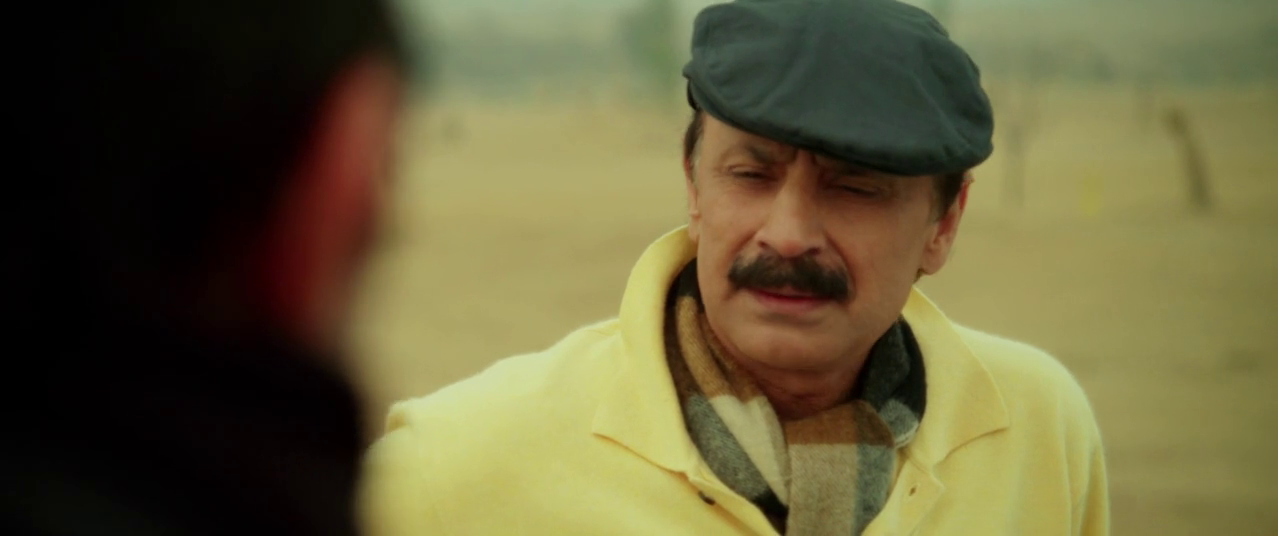
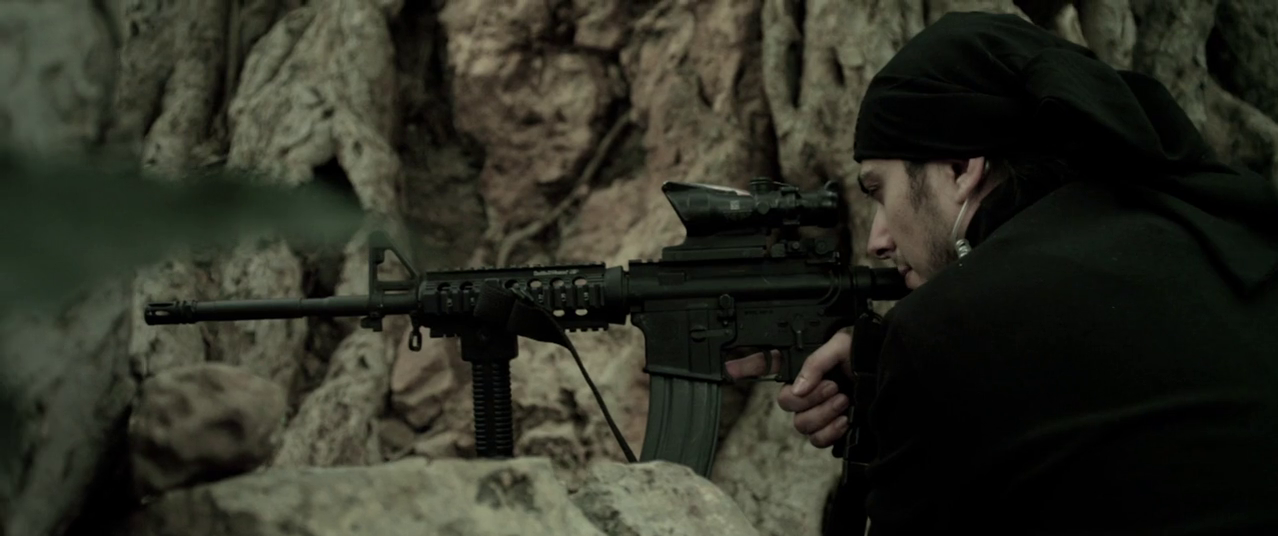
Others like producer Hassan Waqas Rana and Bilal Lashari’s bureaucrat father, Kamran Lashari did manage to pull an above average performance. Kamran Lashari’s accent again was hard to consume at times but would get settled down just the way Ayesha’s did. Hassan didn’t have much to do in the movie except filling the spots excellently where he is good at, like for instance the shooting range scene where both Mujtaba and Hassan’s character put up a good exciting show together. The director Bilal Lashari also gave a few surprise glimpses as a sniper shooter in the movie. Would rate the acting on whole at 3.5 out of 5. Direction & Cinematography: Bilal Lashari did show his San Francisco colours with a stylised direction and an element of slickness in the movie. A few of the big scenes though, like the one of that Shooting range and that of the blast at Mujtaba’s house that plays the role of a background to Shaan’s character were though highly stylised and executed greatly, but could have been even better. As far as getting the best out of his actors was concerned, Bilal did commendable job that resulted in first timers and still fresh ones like Ayesha Khan, Ali Azmat, Kamran Lashari, Hassan Waqas Rana and to a great extent Meesha Shafi too giving the best of what they could.
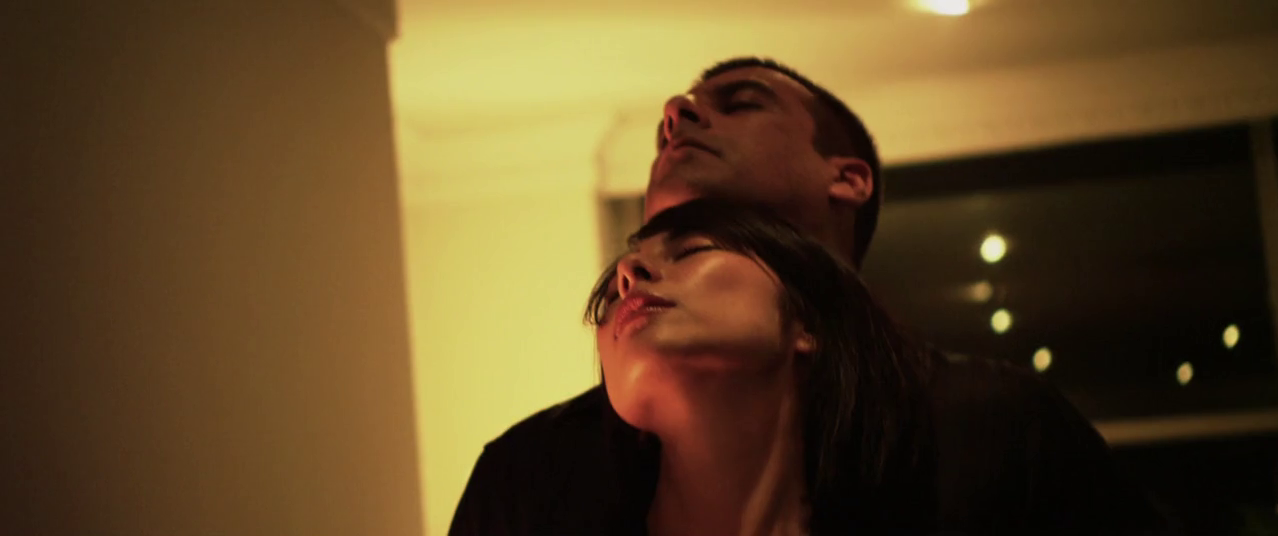
Bilal made a great use of the background score and gave few of the very compelling scenes in the movie, for instance, the last scene of Ali Azmat, the one at shooting range and the dance sequence between Ramal and Lakshmi behind which the flipping point of the story was in play. Cinematography was good, but at times fell victim to a not so good script and marginal glitches in direction here and there, the direction too got largely affected by an incompact story line. To cinematography and direction combined, I would give Bilal’s job 3.5 out of five stars. Visuals and Music: 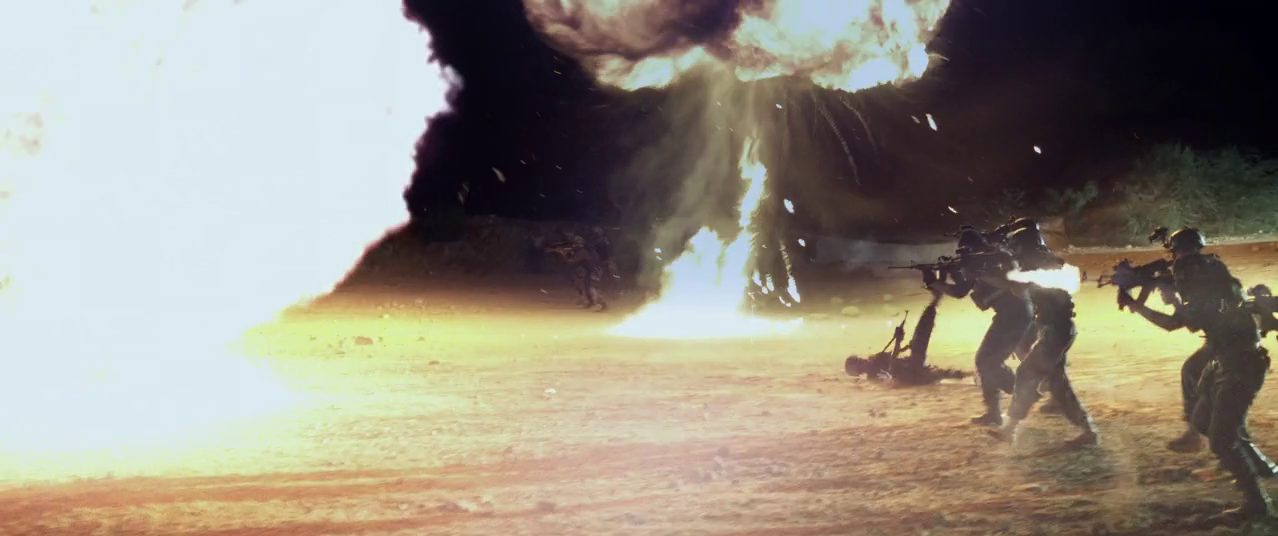 The movie truly was a big visual treat with its own style and grandeur. The use of explosives, weapons and special effects did have the potential to leave you awestruck for few minutes; until you come back to the realisation that the story on whole isn’t helping other elements at all. Music again was just too awesome, a big plus of the movie. Qayaas was amazing with its power while the two Indian songs were utilised the best way possible. The orchestral background score by Amir Munawar was also quite up to the mark. The songs may not be the ones you would just play and play again multiple times, but settled down well with the visuals and heavy situations of the movie. So no points deducted on this point. To these two particular areas, I would give 4.5 out of 5 stars. The Verdict: Waar is an intelligently worked out movie, but lacks heavily on the script side. One big plus of the movie is the fact that it hasn’t been made with the aim of teaching you something, it’s a commercial film with great action and a beautiful pattern which plays its writer’s own perception about things happening in Pakistan. Nevertheless, the good bits of the movie didn’t fail in surfacing out of the whole play, and one cannot just leave without commending them the way they deserve. Waar truly is the best action film to have come out of Pakistan film industry, it’s a must watch for every Pakistani, as it marks the turnover of Pakistan’s film scene for future. On whole, Waar is a 3.5 star out of five.
The movie truly was a big visual treat with its own style and grandeur. The use of explosives, weapons and special effects did have the potential to leave you awestruck for few minutes; until you come back to the realisation that the story on whole isn’t helping other elements at all. Music again was just too awesome, a big plus of the movie. Qayaas was amazing with its power while the two Indian songs were utilised the best way possible. The orchestral background score by Amir Munawar was also quite up to the mark. The songs may not be the ones you would just play and play again multiple times, but settled down well with the visuals and heavy situations of the movie. So no points deducted on this point. To these two particular areas, I would give 4.5 out of 5 stars. The Verdict: Waar is an intelligently worked out movie, but lacks heavily on the script side. One big plus of the movie is the fact that it hasn’t been made with the aim of teaching you something, it’s a commercial film with great action and a beautiful pattern which plays its writer’s own perception about things happening in Pakistan. Nevertheless, the good bits of the movie didn’t fail in surfacing out of the whole play, and one cannot just leave without commending them the way they deserve. Waar truly is the best action film to have come out of Pakistan film industry, it’s a must watch for every Pakistani, as it marks the turnover of Pakistan’s film scene for future. On whole, Waar is a 3.5 star out of five.

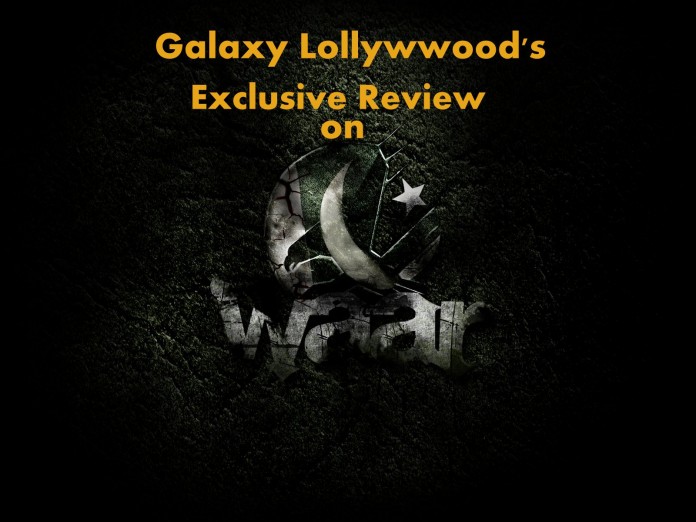
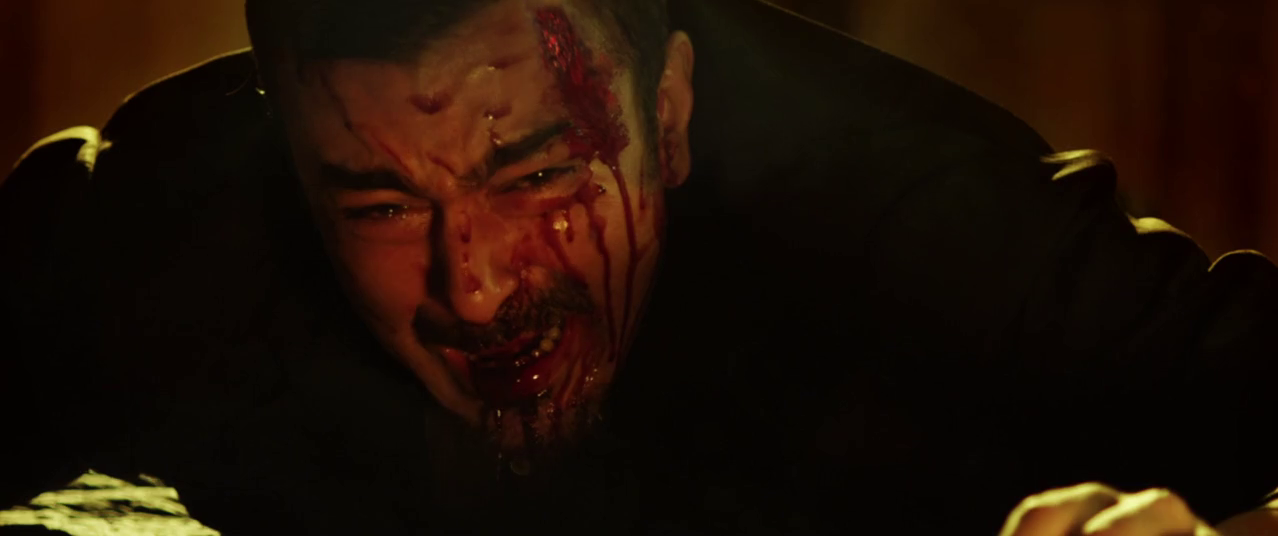



koi mje bta sakta ha yh film kn si website pe mily gi
@Zainlone, For God’s sake, please go and watch the movie in cinemas. Piracy is illegal and harms the years of efforts done by the filmmakers. Neither it is available on any website, nor it should be. If you can afford internet, you can afford a movie ticket too, go, buy the ticket and watch the movie in cinema near your place.
Yaar behtar hai cinema mein dekh lo lekin agar nhi dekh skte to DVD khreed lena baad mein.
Comment removed due to the use of inappropriate language.
(Admin Galaxy Lollywood)